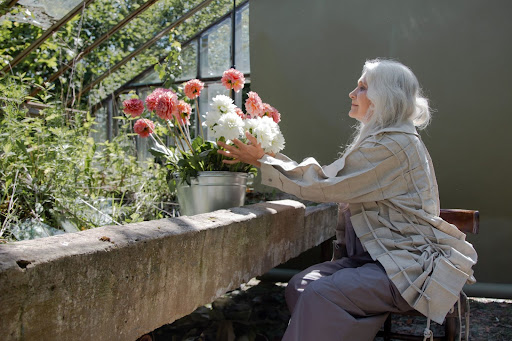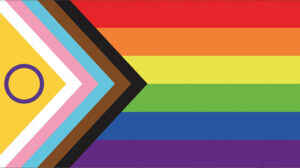Whether we’re actively dealing with loss or choosing to receive support through grief therapy, the truth is we’re all coping.
That’s the long and short of the way we each manage the magnitude of change we’ve been dealt by COVID-19. Amid the crises of faith, the questions of science and the rewriting of our social, professional and human experiences, where do you fit the shadows of grief that seem pervasive even as hope blossoms in falling case numbers?
We’re all coping but we’ve also all lost something.
Many things, truly. From the familiarity of our daily routine to the earth-shattering loss of a loved one, the virus seems relentless in its quest to consume any sense of familiarity or stability we establish. The onslaught of loss that’s been experienced at a global level in the past 20 months reads as emotional overstimulation. We’re all looking for refuge, yet unmoored by all we’ve experienced. We’re grieving across the entire spectrum of our lives and it makes isolating a single sense of loss feel overwhelming.
What is Grief?
While it’s most often identified alongside the experience of losing a loved one, grief is the emotional experience that happens in response to any loss. The human experience of grief is a process that defies time and oversimplification, rooted in what we each go through when we experience pain and trauma. Grief is powerful and multifaceted, often showing up and retreating in unpredictable spaces. It is not one emotion or a concrete period of time. Grief is a process as much as it’s a state of being and, when the loss you experience is truly profound, it can alter the core of your being even if others don’t understand the depth of the impact. It is as variable as the events that may provoke its presence in your life, but there is one constant:
Grief is universally a part of life, but each person’s experience of it will be as unique as their fingerprint.
In the months following the initial lockdowns, the acute feelings of grief for a lost way of life will inspire heavy emotions for everyone, even if they are moving through it adeptly. Grief may feel like paralyzing loss, exhaustion, or uncontrollable sadness. Dealing with loss may feel angry or bitter, or even cause you to struggle against the familiar structures that have remained through this uncertainty. Sleep or food habits may change. While you can always address those specifics individually, there is also so much benefit to acknowledging your unique grieving experiences and creating space to heal those too. Grief counseling can help you through the loss of a loved one or the loss of what you thought your life would look like in this season.
Layers of Loss to Unpack in Grief Therapy
The scope of grief seems to have contracted and exploded through this pandemic, showering the confetti across every aspect of our lives. For many people, the ways we have felt grief in the last year and a half are ways we’d never considered at all, much less encountered in our own spheres of existence. It’s not just those who have lost someone during COVID who are grieving, but the entire way of the world before the pandemic began. Let’s sit together and examine some of those layers of aching loss that are piling atop us all, and consider how grief therapy may help lighten the load.
Death and Bereavement
An estimated 20% of us have lost someone to COVID but moreover, there has been loss of life across every lifescape and cause alongside it. Whether your loved one was a victim of the virus or tragedy struck alongside it one way or another, these deaths feel particularly heavy. For most, part of the early mourning process centers around honor and acceptance.
This practice is often commemorated through gatherings like funerals, celebrations of life or wakes to honor those who are no longer Earthside. COVID restrictions did not always allow for this, and being stripped of the comfort of togetherness and finality has made the ache of loss all the more brutal to bear.
 Dealing with Loss To Routine and Security
Dealing with Loss To Routine and Security
In your pre-pandemic life, you knew what to expect, even if you weren’t quite sure how to expect it. Your weeks, days and months came at you with a sense of obligation for the tasks you must accomplish to continue forward on the path you’ve set for yourself. Each piece of that routine had a place in your world and no matter how you felt about attending them, they were familiar. The commute to work was a route you knew with little sleep and the cursed ride home offered some sense of transition back to your own life.
And then it was all gone. Overnight, the landscape of the routines that held your life on track were removed without a whisper of when they may return or what to do in the meantime. The virus came in like a hurricane, blowing through with little warning and leaving an eerie quiet of not knowing. Except, then it kept coming and you were left drifting as you tried to find purchase in the blank spaces where your familiarity once lived.
Lifestyle and Expectation
Much like your routine, the facets of your life were something you could quantify. At work, you had co-workers. At home, you had comfort. When you socialized, there was space to unwind in the company of others you felt comfortable with. The boxes we ticked in filling out our lifestyle needs made sense and we knew just how we’d designed them, even if we were working toward change.
COVID took the power you had to make those changes, and it took the expectation about what those boxes held right along with it. It wiped clean the knowledge of what a Friday night might look like, or when you’d be allowed to pop into that sinfully good pizza joint on the corner by your office again.
Personal
Life suddenly began to take place from home, which now became work and also the landscape of your social life and also the source of stress as much as comfort. March of 2020 was a time new beginnings, like every Spring. But there were no garden parties or pub quizzes. There were no hang out nights in the back yard and, more than a year later as we head into our second holiday season alongside COVID, there’s still no real sense of when those things will feel normal again.
Professional
Offices closed and working from home felt like a dream. Sweatpants and coffee on tap without that weird microwave lunch you definitely wanted no part of? Sounds amazing.
In many ways, the shift to remote work has been a reckoning on the professional ecosphere as employees gained the power to say- this is how I want to do things, and I can prove it will work this way. But that wasn’t the case for everyone… and even when it did work, suddenly you’re gridlocked into a future you never expected and grasping at straws as you try to retain your sleek veneer of professionalism while you wear all your hats (parent, employee, chef, housekeeper) at the same time.
Will Grief Therapy Help?
The shape of grief is a nebulous thing and when it’s compounded on itself in such a prismatically catastrophic way, separating it from your identity may feel impossible. The pressure to do so is immense, and yet, it’s often a misguided attempt to assuage the discomfort of dealing with loss.
What if we told you that your grief isn’t something to solve?
When someone around you faces loss, it forces you to confront the unsolved loss inside you too. This uncomfortable awareness is often at the root of our desire to “solve” grief but your feelings aren’t problems to be solved. Not even your grief.

We wanted 2021 to bring us a new beginning, but we can’t just quit the endings that came before and, as it turns out, maybe we need to shine a light on what happened to us as individuals and a collective. As painful as dealing with loss is, it’s also a space of honor and healing we can all lean into to shape the way we engage with what we’ve lost. It’s not something you need to heal and move on from. It is something that becomes a part of who you are and reshapes the landscape of what it means to live in your world.
COVID has done that for you, in giving the grief so many roots to take hold- the way you go out, the friends that you see, how you work, and who you’ve lost. What’s changed has been out of your control and it’s likely that as the pandemic continues to change shape, it will remain something you have to adapt to instead of something you can take charge of.
But your grief is not.
COVID is here to stay and the impacts it’s had to this point will linger. What you’ve lost and how you feel those losses are yours. They’re yours to bear and carry, and you can take charge of the role they take as you find your footing moving forward. They are yours to honor as you fit this new landscape to your old life and find a space for your whole self to co-exist in the most authentic ways possible.
Honor, not heal with Grief Therapy
At Awakened Path, we want to create the space for you to feel your grief as wholly as you’re ready to. Whether that takes the shape of a tangled mass, unraveling into the threads to bind a new way of living amid the loss you’ve felt or your pain is clearly defined to navigate in whole part, we’re here to help you shine a light on the path ahead- toward healing into someone new instead of trying to erase the grief you’ve felt. No matter where you are, in life or in your process of acceptance, we offer grief therapy and expert clinicians to support your needs now.
Awakened Path Counseling proudly provides quality transpersonal and traditional psychotherapy, at their offices in Middlesex County, New Jersey, and online. Their experienced therapists specialize in serving children, teens and adults. The clinicians at Awakened Path Counseling are passionate about their holistic approach to mental health, addressing your emotional, cognitive, physical, and spiritual needs.



